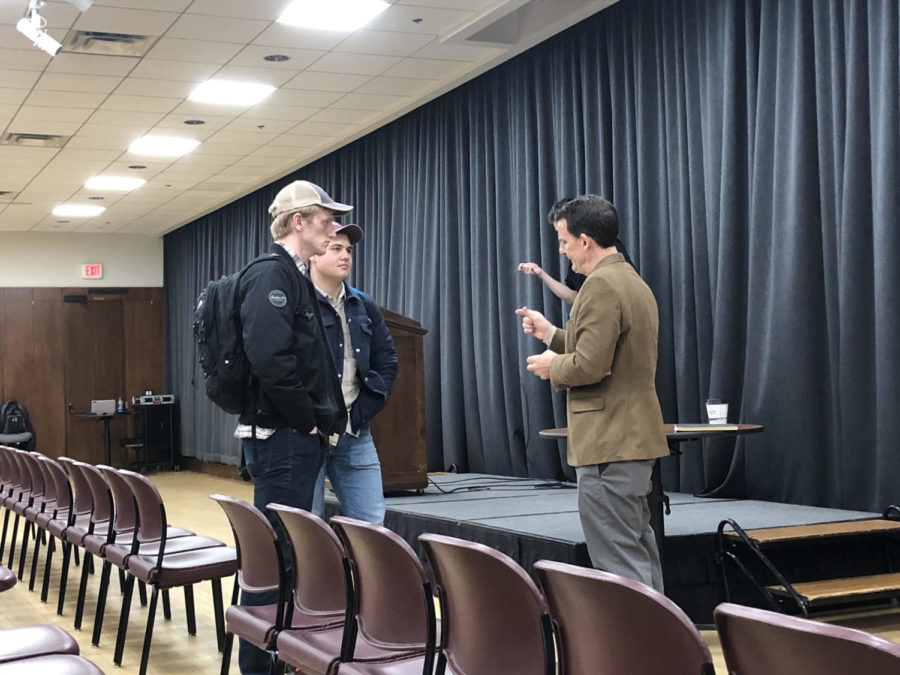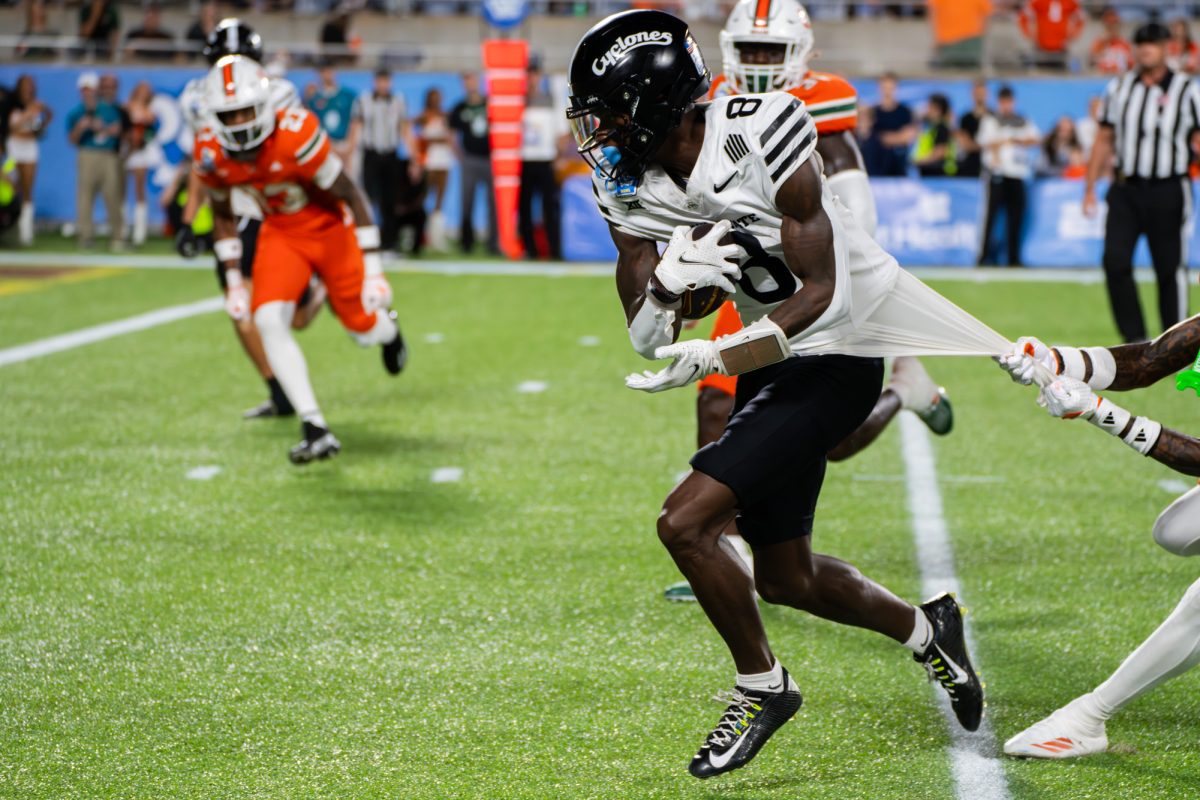Ex-foreign policy official speaks at Iowa State on future challenges
Dave Harden, an ex-Obama administration official, speaks to Iowa State students in the Sun Room of the Memorial Union after delivering a lecture on foreign policy.
January 27, 2020
Dave Harden, an ex-Obama administration foreign policy official, spoke in the Sun Room of the Memorial Union about “national security and the presidential race,” a subject that has gained prominence in the Democratic presidential race in the wake of tensions with Iran.
Harden began his lecture by telling the audience he is from the “swamp,” and he was not referring to Louisiana.
Harden is from Washington D.C. and served as assistant administrator for the United States Agency for International Development’s Bureau for Democracy. Harden worked overseas from 1999 to 2016, primarily in places of crisis.
Harden retired around two years ago and went into the private sector, but he said the foreign service is a way of life.
“When you join the foreign service, you make a profound commitment to represent the best of America,” Harden said. “But it is something that becomes a part of your DNA, your core.”
Harden told the audience this affects how he thinks.
“That shapes the thinking that I have on the risks that we [will] face over the next decade,” Harden said.
Harden said the post-World War II era of the world’s relative stability was going to come to an end eventually, and this will change many of the things Americans are accustomed to, such as language, law and currency.
“What if farmers [in Iowa] had to enter into contracts under a different law, different currency, or a different language?” Harden said. “The world of commerce, the world of technology and the world of language kind of reflects this post-World War II era.”
Harden said this is an inherent advantage the United States has over other countries, and it is an outcome of the World War II era. Once we leave this era, Harden said the world will enter into a great power competition.
This would be “similar to the 1880s” with many competitors, such as China and Russia, Harden said.
“In an era of great power competition, we will see challenges,” Harden said. “We will see efforts to try to undermine what we find important and valuable.”
Harden said he sees this as a time to explore new technology to delay the effects of climate changes, and this leads him into his third point on the changing nature of capital and technology.
“We can envision this future of climate change […] and the threat multipliers behind all of that, or we can ignore it and cede the space to our competitors,” Harden said.
Ross Ackerman, senior in finance, said it was interesting to hear Harden’s predictions for the future.
“I am trying to be a conscious voter, and I think people aren’t thinking enough about the international impacts of elections,” Ackerman said. “We are just thinking issues of maybe identity, or domestic economy[…]. I would implore my fellow student to attend the lecture series.”







